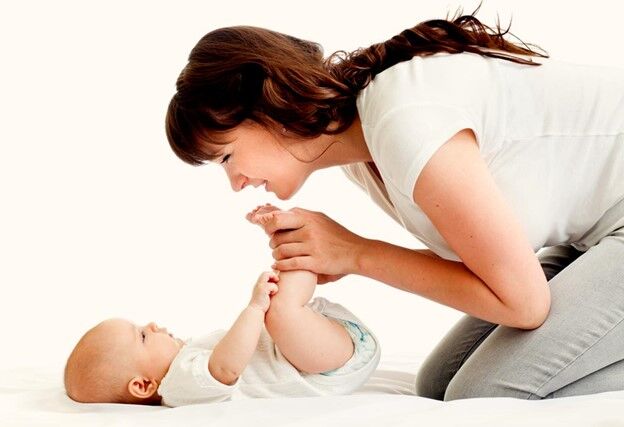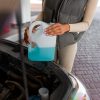- Empty cart.
- Continue Shopping
What Are 5 Things to Take Care of a Baby?

A newborn may make life magical, as well as overwhelming, draining, and terrifying. Babies don’t come with an owner manual. You learn and grow as a parent. Nevertheless, despite how challenging being a new parent can be, you will be alright. Parents also develop their ability to recognize and comprehend their child’s needs, wants, and schedules over time. Although taking care of a newborn, or a baby younger than 28 days old, is not simple, it can be made more bearable with the appropriate information. That said, here are 5 things you need to do as a new parent.
1. Whether you are breastfeeding or giving formula, make sure to feed your baby frequently.
The American Academy of Pediatrics advises nursing for at least six months. If a mother chooses to nurse, her body will typically begin producing milk three days after giving birth. Before that, she would create colostrum, a thick, yellow liquid that is rich in nutrients.
A nursing mother may initially need to work and ensure that her child properly latches to her breast to eat. Speak to a qualified lactation consultant. Many hospitals and birthing centers have at least one on staff who can help your baby to get a good latch and help you to feed them.
Whether you are nursing or using a formula, newborns should be fed every 1-3 hours so that they get eight to twelve meals each day. One to two ounces should be given at a time if you’re feeding formula. Consult your doctor on how to choose, prepare and store formula. Regular meals can help in the weight gain of babies who may have lost it after birth. Your baby will gradually be able to eat more at each meal and less often throughout the day and night as she gets older.
2. Get sleep when your baby sleeps and make sure to start a bedtime routine.
Babies under the age of one must never be put to sleep on their sides or stomachs. Make sure to make them sleep on their backs. Back sleep reduces the risk of sudden infant death syndrome.
At first, newborn babies will sleep a lot (16–17 hours per day), but this sleep is interrupted every hour or so by spells of wakefulness. The majority of the time during the first few weeks, your baby will only need to be fed and changed. As your baby will be up for short periods throughout the night, it will unavoidably disturb your sleep. Hence, make sure you should definitely sleep when your baby sleeps to keep yourself well-rested.
Some infants sleep longer during the day than at night because they mix up their days and nights. If so, it is advised to wake your child anytime naps during the day last more than two hours. As a social cue that it is time for your baby to sleep for a longer period of time, you could also want to establish a bedtime routine. Swaddling, nursing, reading to, and singing to your newborn infant are all part of a newborn nighttime routine. This way babies begin to understand the flow of their day and what to expect next when parents are able to establish a predictable schedule for them right from the early days.
3. Give your child a safe bath, but not too often.
Every day, clean your baby’s mouth, throat, and genitalia, as well as any other areas that tend to get dirty. Showering too frequently might cause dry skin or eczema, a skin ailment characterized by red, itchy skin and rashes. One to two times a week is actually enough.
You should sponge bathe a newborn baby to get rid of any remaining dirt before the umbilical cord stump falls off, which typically takes place 5 to 15 days after delivery. The American Academy of Pediatrics advises placing your infant on a soft, level surface while you cover her in a towel. You should avoid using soap on her face as it could get into her eyes or mouth. Next, dab a small quantity of baby soap onto the washcloth and use it to gently cleanse the rest of her body. Then use a fresh, damp washcloth to re-clean your baby’s body. To avoid dry skin, you can use a baby moisturizer like petroleum jelly after the bath.
Bathe your child in a hard-plastic baby bathtub or basin once the umbilical cord stump has fallen off. Make sure that you have all of the necessary items in hand before starting the bath, including washcloths, baby shampoo or soap, a cup for rinsing, and a dry towel. Never leave a baby unsupervised in a bath because he could drown. If you need to grab something after you’ve put your baby in the water, take your baby with you. Fill the tub with two inches of warm water, approximately 100°F. Put your baby in the bath on his back, wash him with a washcloth and a small quantity of baby soap, and then thoroughly rinse him with warm, clean water. Consider using a moisturizer to apply such as petroleum jelly to your baby’s damp skin after a bath.
4. When your baby awakes, bond with her.
Skin-to-skin contact, such as placing your baby’s bare chest on your bare chest, is one of the finest ways to connect with your baby while she is awake. Studies have revealed that newborns that receive skin-to-skin contact just after birth are more likely to be breastfed and respond more favorably to heart and breathing tests. It is also advised to talk to your baby frequently and bring your face close to hers so she can see you more clearly because babies have poor vision.
Use the “five S’s” — swaddle, side or stomach position (only while awake!), shush, swing, and suck when your baby becomes fussy. It’s preferable to wait until your baby has mastered nursing or bottle feeding if you want to introduce a pacifier to offer him something to suck on.
Don’t overlook stomach time, which is very critical for gross motor development, head control, and neck strength. Tummy time involves putting your awake baby on her stomach for three to five minutes twice or three times a day on a soft, stable surface. Encourage your baby to play on the floor to keep her occupied. If your baby prefers it, you can also do tummy time while lying on your chest.
5. Ask for support.
Being a parent is exhilarating, yet it can also be taxing and unsettling. Ask your partner for assistance, if you have one, or contact other friends or family members if you need guidance transitioning. A worn-out, overworked, malnourished, and emotionally depleted parent or caregiver cannot nurture their baby correctly. Request the help of friends or family to hold your infant, change him, take him for walks, or bottle-feed him formula or extracted breast milk.
The “postpartum blues,” which include mood changes, weight loss, and sleep issues, affect more than half of women. (Partners may experience depression as well.) In most cases, these symptoms go away on their own two weeks after birth. Postpartum depression, which affects one in nine women, may be present if your mood swings are extreme, you’re sleeping too much or too little, or you feel like you can’t carry out daily duties. Talk to your doctor immediately away if you suspect you might be depressed so you can get the support you need.
When you should worry
Call your doctor right away if your baby’s temperature goes above 100.4 (always take a baby’s temperature with a rectal thermometer). A fever in a newborn can be an indication of a dangerous infection. Calling your pediatrician is also a smart move if your baby isn’t feeding properly or is crying nonstop.
If you notice any symptoms of worsening jaundice, which is a condition when the blood contains an excessive amount of bilirubin, a yellow pigment produced by red blood cells, speak with your doctor as well. Increased yellowing of your baby’s skin, particularly on her face, tummy, arms, or legs, or yellowing of the whites of her eyes are indicators of severe jaundice.
How can Hygiene for all help?
Are you looking for baby care products in Dubai? If so, we can help you. We at Hygiene for all bring you baby products and supplies you need to take care of your tiny tot.
From diapers to baby wipes to baby lotion and others, we provide you with all the necessary supplies you need at a competitive price.
Our products are from top brands and of the best quality. We provide the best deals and combo packages that gives you the option to buy more and save more. This is what makes us one of the top baby products suppliers in the UAE. Call us today at 800 23 49 44 363 if you have any queries or visit our website to check out our products.







